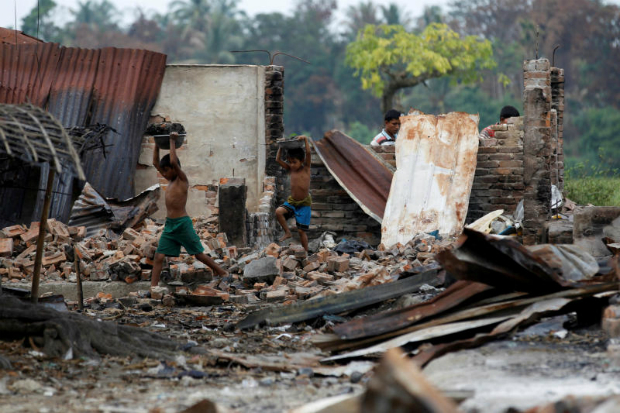
KUALA LUMPUR -- About 2.2 million children living in remote, conflict-hit parts of Myanmar could be left behind as the country rapidly develops following decades of military rule, the United Nations warned on Tuesday.
The UN children's agency UNICEF called for greater humanitarian access to ensure that youngsters in the country have a bright future.
The Myanmar military ceded power to a nominally civilian government in 2011 after nearly half a century of iron-fisted rule, ushering in reforms and opening one of Southeast Asia's poorest countries to foreign investors.
Although social and economic measures rolled out by the government since then have helped improve health, education and protection for children, UNICEF said children in the country's remote parts are yet to benefit.
"Myanmar faces a real challenge in ensuring that children everywhere - and not just in urban areas - gain from the country's rapid development," UNICEF Deputy Executive Director Justin Forsyth said.
"There is a risk that many children and their families are excluded. This is especially the case of poorer children living in remote areas or trapped in situations of tension and conflict."
UNICEF urged the government to provide better humanitarian access not only to children in troubled Rakhine state, which has grabbed international headlines, but also to children in other conflict-hit areas such as Kachin, Shan and Kayin states.
More than 1 million people from the Rohingya minority live in apartheid-like conditions in Rakhine State, and about 75,000 have fled across the border to Bangladesh to escape violence which followed a counter-insurgency operation late last year.
Myanmar's Ministry of Social Welfare, Relief and Resettlement did not reply to a request for comment.
UNICEF acknowledged the country's progress in protecting children including higher funding for immunisation and a draft law, which among other things seeks to ban violence against children and is expected to be submitted to parliament later this year.
But citing the country's 2014 census statistics, it said up to 150 children under the age of five die every day in Myanmar, mainly due to newborn complications and infectious diseases.
Nearly 30 percent suffer moderate or severe malnutrition, and over half live below the poverty line.